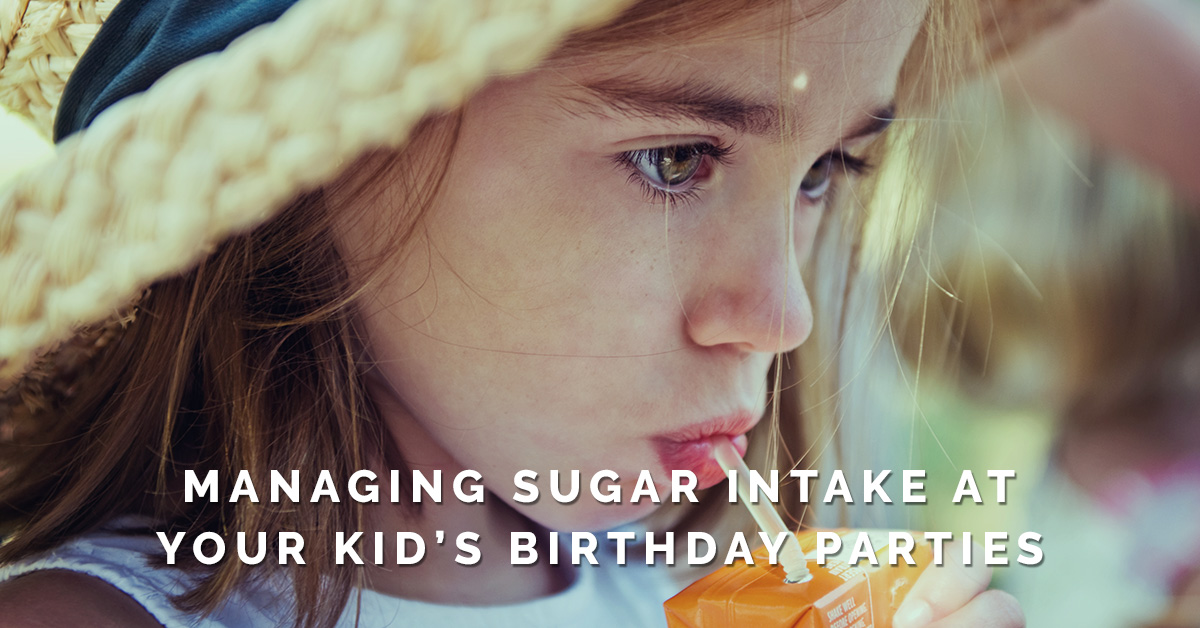
Sugary Goodness Might Not Be So Good?
Sugar seems to have become a daily food group in the lives of many Americans. Most products sold in common supermarkets, sold in restaurants, and even at schools, are made with processed sugars. In truth, a little bit of sweetness is welcomed in any diet, for both adults and children. However, today, the content of sugar in products is becoming uncontainable. For example, the average adult needs to sustain a 2,000 calorie-a-day diet and shouldn’t eat more than 40 grams of added sugar. A modern-day child can consume more than 40 grams of processed sugar in just one meal.
A Little Sugar is Harmless, Right?
Many school lunches have twice the amount of sugar than in classic lunch items, such as peanut butter and jelly sandwiches, a juice box, and a cookie. Part of the issue with sugar is that many are not given a proper education on the subject. We are commonly led to believe that the things we eat are healthy for us, even though some products could be filled to the brim with sugar.
But, what’s the problem with a little sugar? How could sugar be bad? In the past we have overlooked the effects of sugary beverages and treats because they were tasty, and most times, cheap. However, after years of analyzing the patterns of large-sugar content and the age of children, there is a clear connection between the amount of sugar a child ingests and the possibility of developing heart disease, diabetes, etc. But, these symptoms of overeating sugary items only skims the surface of health risks. In fact, there are still studies being done on the effects of sugar, especially on the brain.
What is the most frightening part about our current sugar epidemic is that most parents aren’t aware how they are encouraging their child’s sugar habits. For instance, more parents encourage eating large, sugar-rich items at their kid’s birthday parties. Now, just because birthday parties have a lot of sugar at them, in no way does this mean that you should boycott birthdays. However, perhaps developing new methods for making the birthday cake and refraining from overindulging your child in candy, would significantly help their health—especially when finding out that the average child in America under 12 years old consumed 49 pounds of sugar per year.
What Does Sugar Do?
Sugar has obvious drawbacks such as weight gain. Currently in America, one in three kids and teens are overweight or obese. From 1971 to 2011, child obesity has tripled in America. Sugar is known to be absorbed by the body and made into fat deposits. However, the consequences don’t end at obesity. No, there are dozens of other health effects ranging from the brain to the body. In the brain, high sugar intake in children can cause an imbalance in the brain by affecting the interference between neurotransmitters. Specifically, the neurotransmitters affected are responsible for mood stability. Anxiety and depression are both major side effects in children who consume large quantities of sugar. Also, increased sugar levels over time can lead to a resistance to insulin. This eventually results in the body not being able to control blood sugar, which leads to diabetes. Diabetes in children can be dangerous because often children aren’t equipped to be responsible for their blood sugar and taking their insulin shots. If your child is diagnosed with diabetes you, their parent or guardian, will be responsible for their care. Roughly 30.3 million people in America have diabetes, which means that 15,000 children are diagnosed with diabetes each year. Worse, diabetes can lead to serious illness later in a child’s life. Today, diabetes is the seventh leading cause of death in the U.S. 60 to 70 percent of all people diagnosed with diabetes experience nervous system damage.

Alternative Grocers?
Obviously, our behavior towards sugar should be changed. However, it can be difficult to change your attitudes about sugar, as it is incorporated in almost every type of food in your local supermarket. It is unfortunate that such a high level of sugar is in so many items we eat. Though in America, making a dietary change can be difficult, but it is not impossible. There are many grocery stores available to the public that put an emphasis on natural foods that are healthy for the body. For example, Sprout’s, Henry’s, WholeFoods, and Natural Grocers are all chain supermarket stores that believe in the nutritive value of organic food.
Are Sugar and Cocaine Brothers?
It is important to remember that your children learn their eating habits from their parents. If you allow them to consume large traces of sugar, in many ways they will become “addicted” to sugar. In the New York Times, a study was published demonstrating the addictive nature of sugar in subjects both human and animal. It was found that sugar stimulates brain pathways in adults and children much like opioids. Sugar has also been found to incite neurochemical changes in the brain and considered habit-forming. Worse, the cravings induced by sugar are comparable to drugs such as cocaine and nicotine. In fact, during an experiment conducted with lab rats, it was proven that rats would choose sugar water over cocaine due to the lasting effects of the “high.” So, are sugar and cocaine comparable to the relationship of brothers? Whether their relationship is close or not, those effects have been proven.
What Can You Do?
The biggest question to ask is, “What can you do?” Well, for starters, you should clear your come of things that are naturally filled with processed sugar. This means you should not buy sugary drinks such as soda, or commercial juices. After the sugary beverages are gone, then throw away any candy or processed desserts. Make sure that when you are making this sugar-purge, look through your pantry and toss your jar of white sugar and maple syrup. Processed maple syrup has one of the highest contents of sugar and is commonly eaten by your kids.
Now that you have cleared the sugar from your house, you must find alternatives. Though sugar can be dangerous, small traces of natural sugars can be good for you. For example, fruits have natural sugars and nutrients that can be utilized in snacks, meals, and desserts.
There are also other alternatives to sugar that you can use to sweeten dishes and desserts. For instance, coconut sugar, natural maple syrup, and honey are all valuable sweet alternatives that can still give you your intake of sugar without the side effects. Also, there are granulated sugar alternatives, such as Cassava, that are great to incorporate in desserts as well.
So, just because you don’t believe in consuming processed sugar, doesn’t mean you are against all sugar. Natural sugars have value, in terms of your body’s health, which is why alternatives exist. Part of every parent’s biggest struggle, however, is how to monitor their child’s sugar intake during birthday parties.
Kid’s Birthday Parties are a Sugar-fest
Kids’ birthday parties are a sugar fest, as sugary items are a main staple in the event. For example, at a birthday party children often drink soda or juice. Then, children will eat items such as pizza or chicken fingers. Though the items themselves don’t have sugar in them, children eat tomato sauce and ketchup, both of which are made with processed sugar and fructose. Then, after the meal, the children settle for cake, which is almost entirely made with sugar. After cake, some birthday parties also have a pinata, where candy rains down on your kids. At the end of the day, it would be no surprise if your child went into a sugar-coma.
There are ways to keep this sugar-fest from happening: patience and education. If you want to limit your child’s sugar intake at a birthday party, the best way to do so is by offering better options. If you purchase healthy juices, made from whole fruit and non-processes sugars, you will solve the sugary-drink problem. Unfortunately, most food in America is made with some type of sugar. However, if you make the food yourself, you can limit the amount of sugar in your child’s meals. And, for the dessert portion of the party, you can choose to make the cake yourself! For example, organic maple syrup is a great alternative to make a cake with. Your guests will never know the difference and you can rest easy without filling their bellies with harmful substances.
As for the candy part of every party — skip it. Your guests will benefit from less sugar anyway. Instead of doing a pinata for entertainment value, chose an exciting party venue.
Rebounderz
At Rebounderz, we have plenty of attractions to keep your guest busy during your party. Better still, our indoor trampoline park will keep your guests active and healthy with plenty of exercise. If you are planning to coordinate your child’s party, Rebounderz is a great place to set up your party and bring your own food. Not only does Rebounderz offer you a designated birthday party room, we allow customers to bring in their home-cooked foods. If you are interested in hosting a birthday party for your child, Rebounderz is the place to go! Visit us online for more information.
 Shop Gift Cards
Shop Gift Cards
 Buy Tickets
Buy Tickets
 Learn More
Learn More
 Get Tickets Now!
Get Tickets Now!
 Sign Up Now!
Sign Up Now!



 Mar 20, 2018
Mar 20, 2018 


